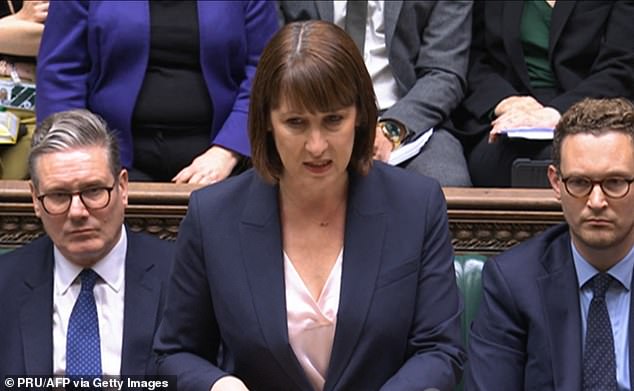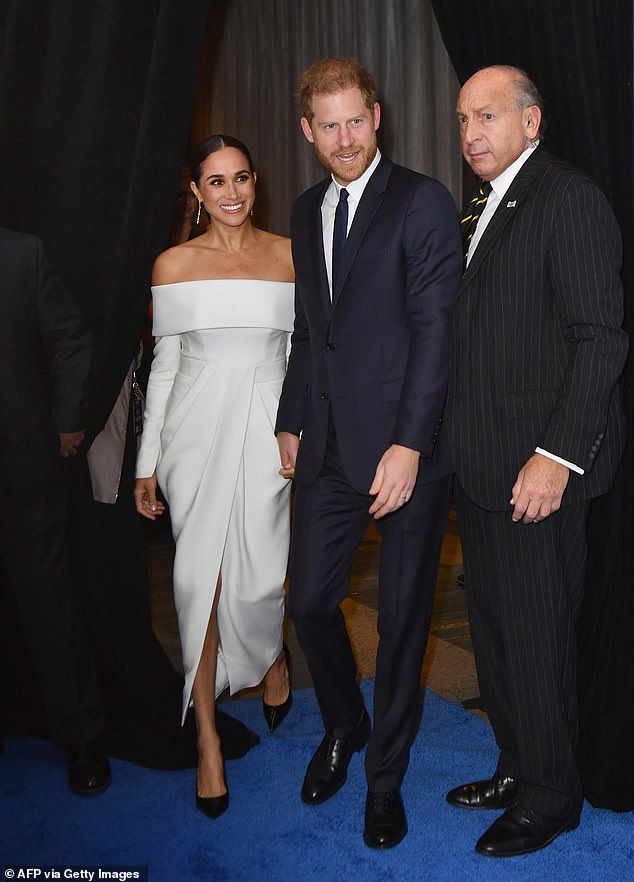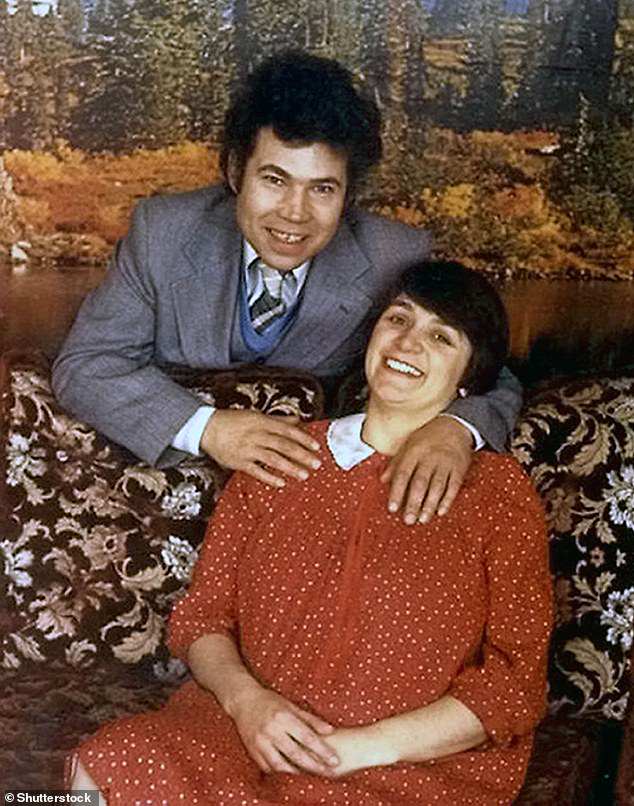Chancellor Rachel Reeves today confirmed the Government has put a pay deal to junior doctors that could see their earnings rise by a staggering 22 per cent.
The British Medical Association’s (BMA) junior doctors committee will now put the offer to its members. If accepted, it will end the months of crippling walkouts.
The Chancellor hailed the offer ‘the start of a new relationship’ between the Government and NHS staff.
Yet she admitted ‘difficult’ cuts were urgently required by departments to fund the colossal public sector pay increases.
Union chiefs warned there was still ‘further to go yet’, but urged its members to back the deal admitting it was the ‘best available at this moment in time’.
It comes despite some medics already calling for the offer for be rejected, instead doubling down on the union’s original demand for a 35 per cent salary hike.

Chancellor Rachel Reeves hailed the offer ‘the start of a new relationship’ between the government and NHS staff. Yet she admitted ‘difficult’ cuts were urgently required by Government departments to fund the colossal public sector pay increases

The British Medical Association’s (BMA) junior doctors committee will now put the offer to its members. If accepted, it will end the months of devastating walkouts

Union chiefs warned there was still ‘further to go yet’, but urged members to back the deal admitting it was the ‘best available at this moment in time’. Pictured, co-chairs of the BMA’s junior doctors’ committee, Dr Vivek Trivedi (left) and Dr Rob Laurenson (right) arriving at the Department for Health and Social Care for a meeting with Health Secretary Wes Streeting last week

Junior doctors in their first year currently have a basic pay of £32,300, while those with three years’ experience make £43,900. The most senior earn £63,100
Addressing the House of Commons, Ms Reeves said: ‘Industrial action in the NHS alone last year cost the taxpayer £1.7billion.
‘That is why I am pleased to announce today that the government has agreed an offer to the junior doctors that the BMA are recommending to their members.’
However, she added: ‘Because the previous Government failed to prepare for these [public sector pay] recommendations, they come at an additional cost of £9billion this year.
‘So, the first difficult choice I am making is to ask all departments to find savings to absorb as much of this as possible, totalling at least £3billion.
‘To support departments as they do this, I will work with them to find savings ahead of the autumn budget including through measures to stop all non-essential spending on consultancy and government communications.’
Responding to the announcement, Junior Doctor Committee co-chairs Dr Robert Laurenson and Dr Vivek Trivedi said: ‘It should never have taken so long to get here, but this offer shows what can be achieved when both parties enter negotiations in a constructive spirit.
‘This offer does not go all the way to restoring the pay lost by junior doctors over the last decade and a half.
‘However, we have always said that we did not expect to get there in one go.
‘This offer, combined with the recommendation of the pay review body today, changes the current trajectory of our pay, even though there is further to go yet.
‘We are recommending that members vote for the deal.
‘We believe that this is the best offer available at this moment in time and that the inclusion of the additional reforms make the package a good step forward for our profession, acknowledging there is still more work to be done in the future.’
They added: ‘There is a catastrophic NHS workforce crisis that needs addressing and they at least appear to recognise that fixing pay must be part of the solution.
‘The last 20 months have shown what happens when a Government refuses to engage with the reality of real-terms pay cuts. That has to stop now.
‘This deal is a start: it means we can begin to restore our value and return to a strong workforce and high quality patient care.
‘There is still a way to go but this Government has shown it can learn from mistakes of the past. We recommend members vote yes.’
Under the proposed pay deal, junior doctors would see a rise of between 8.1 per cent and 10.3 per cent for the upcoming financial year as well as a backdated 4.05 per cent increase for 2023/24.

Under the proposed pay deal, junior doctors would see a rise of between 8.1 per cent and 10.3 per cent for the upcoming financial year as well as a backdated 4.05 per cent increase for 2023/24
That is on top of an existing 6 per cent pay rise for 2024/2025, topped up by a £1,000 payment. This is equivalent to a pay rise of between 7 per cent and 9 per cent.
The overall package represents a pay rise of 22.3 per cent on average.
If accepted, it means a doctor starting foundation training in the NHS will see their base pay increase from £32,400 to £36,600.
For highest paid junior doctors, who currently take home just over £63,000, the deal could see their salaries rise in excess of £70,400.
From September, junior doctors will also be referred to as ‘resident doctors’ to ‘better reflect their expertise’, the Department of Health and Social Care (DHSC) said, bowing down to pressure from the BMA.
The union has long called for the NHS to stop using the term ‘junior doctor’ with members ruling it is ‘demeaning’ to trainee medics.
It has repeatedly said the infantilising phrase has been used to ‘devalue’ and ‘diminish’ their members’ contribution to the health service and suppress their wages.
Under today’s announcement, there will be a review of the training curriculum and of training numbers to address the bottlenecks that slow doctors’ career progression, the DHSC added.
And a review will examine the number and frequency of ‘rotations’, which see doctors’ lives disrupted as they are forced to move around the country for training.
The breakthrough comes less than a week after new Health Secretary Wes Streeting had his first formal meeting with BMA junior doctors’ committee over pay.
It followed months of failed talks with ministers from a sequence of Conservative Governments.
Mr Streeting said: ‘I am delighted that we have agreed an offer that finally paves the way to ending industrial action which has caused untold misery to patients and staff.
‘Everyone agrees we can’t have more disruption, more cancelled appointments, which is why my priority from day one has been to end this dispute.
‘This has been a tough negotiation, but we have worked rapidly to reach a fair offer.
‘I have been honest about the terrible economic inheritance left for this government, while the junior doctors’ committee has been clear that nothing less than the offer on the table will bring these strikes to an end.
‘This is a fair offer. Fair to junior doctors, fair to patients and fair to the NHS. It also represents an opportunity to truly reset relationships so we can begin working together to bring waiting lists down and fix the broken NHS.’
However, as large as the 22 per cent pay boost is on paper, it still falls short of the 35 per cent BMA junior medics were demanding as they repeatedly took to the picket lines.
This means it could still be rejected by the membership and action could continue until at least September, when the junior doctors’ latest mandate is due to expire.

The breakthrough comes less than a week after new Health Secretary Wes Streeting (pictured) had his first formal meeting with BMA junior doctors’ committee over pay. It followed months of failed talks with ministers from a sequence of Conservative Governments



The British Medical Association’s (BMA) junior doctors committee has reportedly agreed to put the offer to its members. If accepted, it will end the months of paralysing walkouts over pay. But doubling down on the union’s original demand for a 35 per cent salary hike, some members today vowed to not stop until full pay restoration is achieved
The BMA has long claimed its demands are for ‘pay restoration’ given that previous NHS salary rises for medics have not kept pace with inflation since 2008.
And today some medics have already called for the deal to be rejected.
Others even labelled the 22.3 per cent offer as ‘abysmal’ and instead urged the BMA to ‘try again’ and for union members to ‘fight for what you are worth’.
Taking to X, one junior doctor, Dr Tim Ricketts wrote: ‘It’s important to remember the quoted 20 per cent figure includes the pay increase given to us by the Tories.
‘Without commitment to full pay restoration, I’ll be voting no to this offer.
‘Any deal that leaves an F1 [Foundation Year 1] being paid less than their assistant is unacceptable.’
Another anonymous account said: ‘Not good enough. What are you all playing at? This is still a MASSIVE pay cut. Know your worth.’
Meanwhile, a third wrote: ‘Not good enough. Vote no’
Tropical disease medic Dr Eilidh Garrett also said: ‘A day 1 Physician Associate will still be earning substantially more than an F1.
‘Best deal for most junior doctors?
‘Try again. If inflation is 8 per cent for example next year we will have only just kept up with inflation and done nothing to correct the years of erosion.
‘I went on strike because I wanted full pay restoration, did you?’
It comes as strike action taken by the group earlier this month saw 61,989 appointments, procedures and operations postponed, with 23,001 staff absent from work at the peak of the five-day action.
The latest walkout, just days before the general election, was the 11th strike by junior doctors in 20 months.
At the time, ministers in Rishi Sunak’s former government labelled the action a ‘highly cynical’ tactic.
Another senior Tory source went further by suggesting to MailOnline that there was ‘clearly collusion’ with Labour.
Some 1,486,258 appointments have been postponed since NHS industrial action — which has involved staff including doctors, nurses, physiotherapists and paramedics — kicked-off in late 2022.
But not all NHS trusts have supplied figures on cancelled appointments, meaning the true scale of the disruption is expected to be higher.
Junior doctors in their first year currently have a basic pay of £32,400, while those with three years’ experience make £43,900. The most senior earn £63,100.
It comes as the government also confirmed a pay rise of 5.5 per cent for other NHS workers today, including nurses, after accepting the recommendations of the independent pay review body.
This pay rise covers around 1.3 million staff.
Doctors and dentists will receive a pay rise of six per cent, and senior NHS managers will get an increase of five per cent.
But in a sign other NHS workers could seek a similar deal to that struck with junior doctor leaders, medical unions today called on the government for ‘the same fair treatment’.
Royal College of Nursing general secretary and chief executive Professor Nicola Ranger said: ‘When it comes to pay in the NHS, all professional groups deserve a clear route to fair pay restoration – making up for a very serious loss of earnings in the last 15 years.
‘Stagnant salaries at a time of spiralling prices forced too many to leave and deterred others from joining.
‘We do not begrudge doctors their pay rise. We work together closely, in the interests of our patients.
‘What we ask for is the same fair treatment from government.
‘Our members will vote on whether they see today’s announcement as enough of a start on our journey.
‘When the full details are released, it must show that the funding is being made available to the NHS and all employers who deliver NHS services.’
Meanwhile, Shawn Charlwood, chair of the British Dental Association’s General Dental Practice Committee, wrote on X: ‘It’s welcome progress, but one above-inflation increase will not correct a decade of savage pay cuts with no equal.
‘High street dentists have not taken industrial action. They are simply walking away. We won’t halt this exodus without real reform & fair, sustained funding.’
Dr David Wrigley, deputy chair of the BMA GP committee also wrote: ‘The 6 per cent on offer from govt for GPs *includes* the prev paltry offer of 1.9 per cent.
‘So it’s an additional 4.1 per cent. I suspect this will go down like a lead balloon with the profession as practices close & colleagues struggle to continue.
‘We need so much more and promise of a brand new contract.’
It comes as GPs have already threatened to bring the NHS to a ‘standstill’, after balloting family doctors over industrial action.
The ballot, which closed today at midday, could see action start as early as this Thursday.
It is feared as many as 3million GP appointments a month could disappear if all family doctors kowtow to the BMA demands to slash numbers to just 25 a day.
Professor Len Shackleton, an editorial and research fellow at the right-wing thinktank, the Institute of Economic Affairs, also said: ‘Unions have long memories, and will not be satisfied with a one-off settlement.
‘They will aim to outstrip inflation permanently and will be back again and again for higher pay.
‘Activists long to roll back the years to the pre-Thatcher era when militants ruled, and the wind is in their sails.
‘Nobody in this government has any experience of union militancy. Keir Starmer, a comparatively elderly (61) member of the cabinet, was a teenager during the Winter of Discontent in 1979.
‘Most of today’s Labour politicians think that talking nicely to the unions will resolve any problems. I fear they are likely to learn the hard way that it ain’t necessarily so.’









